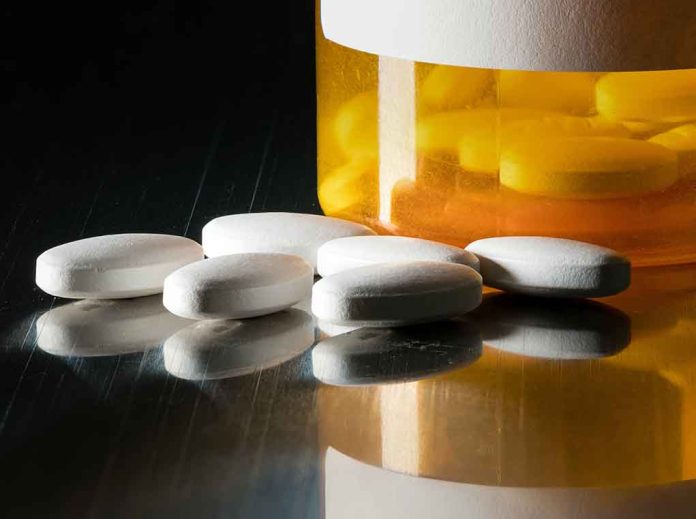
Louisiana becomes the first state to classify abortion pills as controlled substances, sparking a heated debate on safety and access.
At a Glance
- Louisiana has reclassified abortion drugs mifepristone and misoprostol as controlled substances
- Possession without a prescription could lead to jail time and hefty fines
- The bill was passed by the state legislature and signed into law by Republican Governor Jeff Landry
- Abortion advocates fear this could lead other states to impose similar restrictions
- The U.S. Supreme Court is set to rule on national access to mifepristone soon
Louisiana Takes Unprecedented Step in Abortion Regulation
In a groundbreaking move, Louisiana has become the first U.S. state to classify the abortion-inducing drugs mifepristone and misoprostol as dangerous controlled substances. This decision, spearheaded by the state’s Republican-led legislature and signed into law by Governor Jeff Landry, marks a significant shift in the ongoing debate surrounding abortion access and regulation in America.
The new law places these medications in the same category as Schedule IV drugs like Ambien and Xanax, despite the FDA not considering them to have potential for abuse or dependence. This reclassification means that possession of these pills without a valid prescription could result in serious legal consequences, including jail time and substantial fines.
Louisiana House passes bill to restrict abortion pills https://t.co/Z37IGusFmB
— BBC News (World) (@BBCWorld) May 22, 2024
Impact on Medical Care and Women’s Health
The reclassification of mifepristone and misoprostol has raised concerns among medical professionals and women’s health advocates. These drugs, approved by the FDA in 2000 for use up to 10 weeks of pregnancy, also have other important medical applications. Misoprostol, for instance, is crucial in treating stomach ulcers and managing postpartum hemorrhaging.
Hundreds of doctors have voiced opposition to the bill, arguing that it could negatively impact medical treatment beyond abortion care. Critics worry that the law sends a false message about the safety of these drugs and may delay necessary medical care in critical situations.
Today, LA's reclassification of abortion pills as “controlled substances” took effect. This further criminalizes safe medical care & baselessly jeopardizes access to essential reproductive health care, including risking lives in medical emergencies.
Louisianans deserve better. https://t.co/L8y2GQKZP8
— Pro-Choice Caucus (@ProChoiceCaucus) October 1, 2024
Political Implications and National Debate
The passage of this law in Louisiana has ignited a fierce national debate. Vice President Kamala Harris has criticized the bill, connecting it to the broader context of abortion rights following the Supreme Court’s overturning of Roe v. Wade. Abortion advocates fear that this move by Louisiana could inspire other states to impose similar restrictions, further limiting access to reproductive healthcare.
As the nation grapples with this development, all eyes are on the U.S. Supreme Court, which is set to rule on national access to mifepristone in the near future. This upcoming decision will mark the most significant abortion-related case since the landmark overturning of Roe v. Wade, potentially reshaping the landscape of reproductive rights across the country.
The Louisiana law represents a new frontier in the ongoing debate over abortion access and regulation in the United States. As other states consider similar measures, the impact of this legislation on women’s health, medical practice, and constitutional rights will continue to be closely watched and hotly debated.
Sources:
- Louisiana designates abortion pills as controlled substances
- Louisiana lawmakers to debate bill classifying abortion pills as dangerous controlled substances














